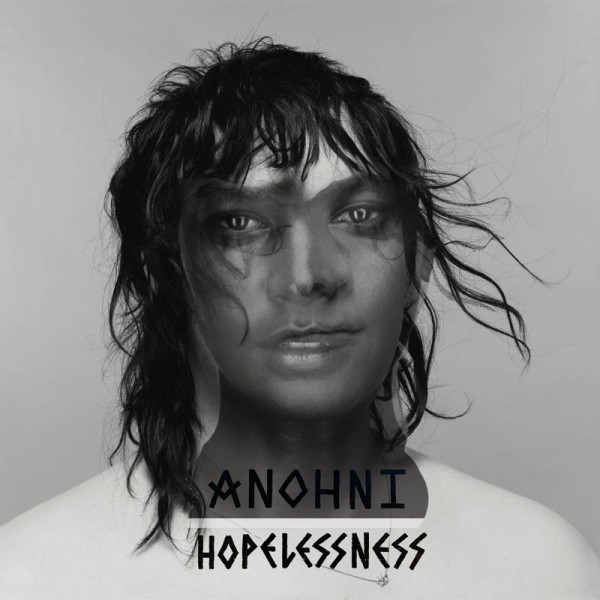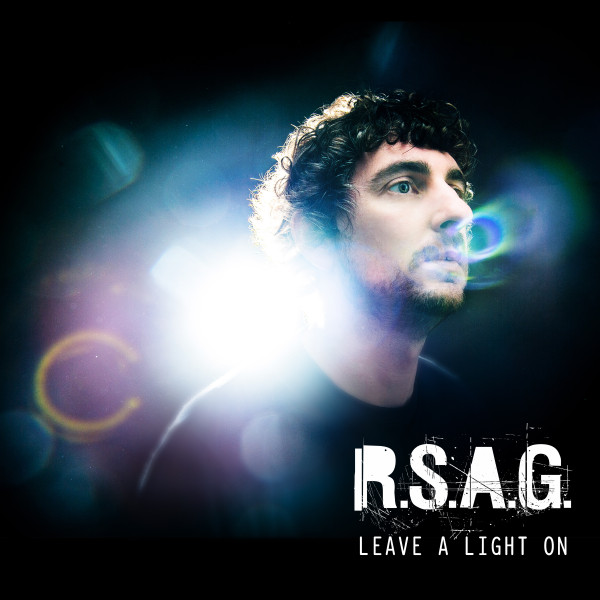For her first release since disbanding Antony and the Johnsons, Anohni has changed not just her name, but her sound as well. Gone are the doleful torch ballads of Antony and the Johnsons (1998) and I am a Bird Now (2005), and the intricate chamber arrangements of The Crying Light (2009) and Swanlights (2010). In their place are electronic soundscapes rooted in the sensibilities of the record’s two producers – the harder edges of Hudson Mohawke marrying surprisingly easily with the more amorphous textures of Oneohtrix Point Never. The change of sound is drastic, but arguably necessary, Antony and the Johnsons having proceeded to a logical conclusion with 2012’s lavish Cut the World live album.
The obvious reference point here is Björk, which whom Anohni has collaborated several times – most recently for the tremendous ‘Atom Dance’ on last year’s Vulnicura. Like that record, Hopelessness mines for deep humanity within the often challenging textures of the so-called avant garde. Lyrically, however, Anohni is orbiting many of the same themes as The Knife’s polarising Shaking the Habitual (2013), with Hopelessness largely eschewing the forensic inward focus of her earliest releases in favour of a kind of poetic state-of- the-world address. This is not a wholly new outlook for Anohni – both The Crying Light and Swanlights dealt at least as much in ecological as individual crisis – but Hopelessness finds her at her most direct, the bluntness of the lyrics creating a tension with her voluminous singing that is as intriguing as it is difficult to parse. The result is an album that is equally exquisite and enervating – often at the same time, and often, assumedly, deliberately so.
The majority of the record’s songs, notably the opening run of ‘Drone Bomb Me’, ‘4 Degrees’ and ‘Watch Me’ find Anohni occupying a kind of consciously inverted position – imploring to be drone bombed, celebrating global warming, extolling the virtues of blanket surveillance. That Anohni refuses to absolve herself of culpability in the myriad evils she addresses creates an intriguing dissonance – a more provocative stance, perhaps, than the detached reportage of PJ Harvey’s recent Hope Six Demolition Project. These are, nevertheless, some form of protest song – setting the humanity implicit in Anohni’s keening voice against the dehumanisation and destruction itemised by the words. It’s a persuasive trick, but it is a trick – and, as such, it can fall victim to diminishing returns.
The record plays an ongoing game with the listener’s sense of distance – seducing us musically, while repelling us lyrically – that can be exhausting as well as exhilarating. ‘Drone Bomb Me’ is a case in point. The song is, among other things, extraordinarily sexy – with its glacial electronics and cooed invocation to “Choose me tonight […] lay my purple on the grass”. A commentary is implied by the mere action of making an erotically charged song about drone bombing, just as a commentary is implied by Anohni’s switch to electronic music in order to make such a song – but exactly what that commentary might be depends entirely on whether the listener buys into the idea that the electronic backing of Hopelessness necessarily denotes dehumanised decadence in a way that the tactile musicianship of Antony and the Johnsons did not. (The less said about the song’s video the better – although one hopes its hagiographic enshrinement of Naomi Campbell indicates that she’s revised her position on war crimes since carping to The Hague for imposing upon her time).
Hopelessness positions itself less as a coherent manifesto than as a cri de Coeur, and on those terms it is often a spectacular listen. The delightfully uncircumspect ‘Obama’ (“All the hope drained from your face / Like children we believed”) unfolds in a murky netherworld that owes something to the ravishing desolation of Japanese Butoh dance. Never the most rhythmically attuned of singers, Anohni occasionally seems to float above these tracks, rather than to embed herself into them – a key distinction between her and Björk, whose connection to the music is absolute, however abstract. As a result, the strongest moment of Hopelessness is perhaps its most reserved. On the transporting ‘Crisis’, all traces of sloganeering fall away for a 21st-century hymnal that is deeply moving, and deeply disturbing. As Anohni’s voice rises from a muted murmur to an imploring cry, the song caps Hopelessness with a moment of genuine transcendence, pulled out of its simplest components. Listening to it – as to much of this record – you may not know whether to exalt or despair. That’s not a comfortable position, but it’s where Anohni wants us to be – and, perhaps, it’s where we need to be. David Turpin






